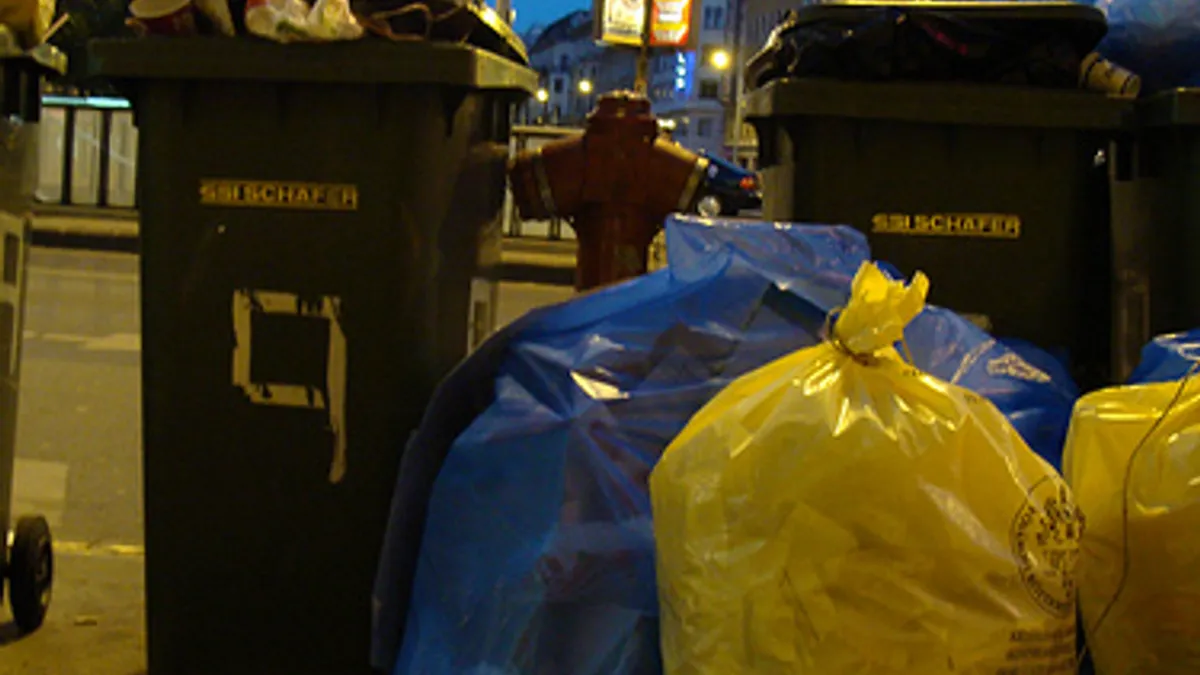Dive Brief:
- Chicago’s Department of Streets and Sanitation no longer accepts bagged recyclables placed in carts and will now enforce recyclables to be placed loose without a bag, in an effort to ensure that customers aren't placing smaller plastic bags in the recycling stream. If carts contain plastic bags, they will be stickered and could potentially be confiscated, according to Greg Maxwell, senior vice-president of Resource Management, a city recycling contractor. However, Streets and Sanitation spokesperson Jennifer Martinez said no such consequence has been decidedly chosen.
- The city will continue educational efforts to explain how and what to recycle. It will also push a press release about the "Go Bagless" plan, and e-mail reminders to constituents from aldermen.
- Martinez said it’s too early to determine whether the bagless mandate, which began Jan. 1, has generated resistance or whether carts with bagged materials are being left behind.
Dive Insight:
The new mandate is being enforced after the city had instructed Chicagoans for years to place plastics, cans, bottles, and paper in blue bags and toss them with their regular garbage, which few residents were doing. However, without the blue bags, haulers will now be able to easily tell if customers are dumping smaller plastic bags into the bins.
Asking residents to change the protocol they have become accustomed to can be disruptive, especially if that change calls for more work, as carrying loose recyclables will do. And the "Go Bagless" rule is not the first time they have been expected to change course; having been asked to participate in the "Blue Bag" program was a change earlier, which never gained Chicagoans acceptance.
It’s likely going to take time to break habits, but the city believes that by investing in education and good communication, residents will begin to understand and chose to go with the plan. Last summer, another Illinois town had an upset after changing its recycling and trash pick up to make routes more efficient and to give resident more choices. Despite initial complaints, residents became accepting, and education and communication were key to the transition that eventually smoothed out.
Maxwell said Chicagoans "need to be educated to do the right thing ... There’s a series of progressions. Educate `em first. Give them warnings. But after that, they have to do something proactive"
Ald. Pat Dowell asked the Department of Streets and Sanitation to "be lenient" about the edict for a few weeks so contractors who pick up the recyclables in her South Side ward can catch up.














